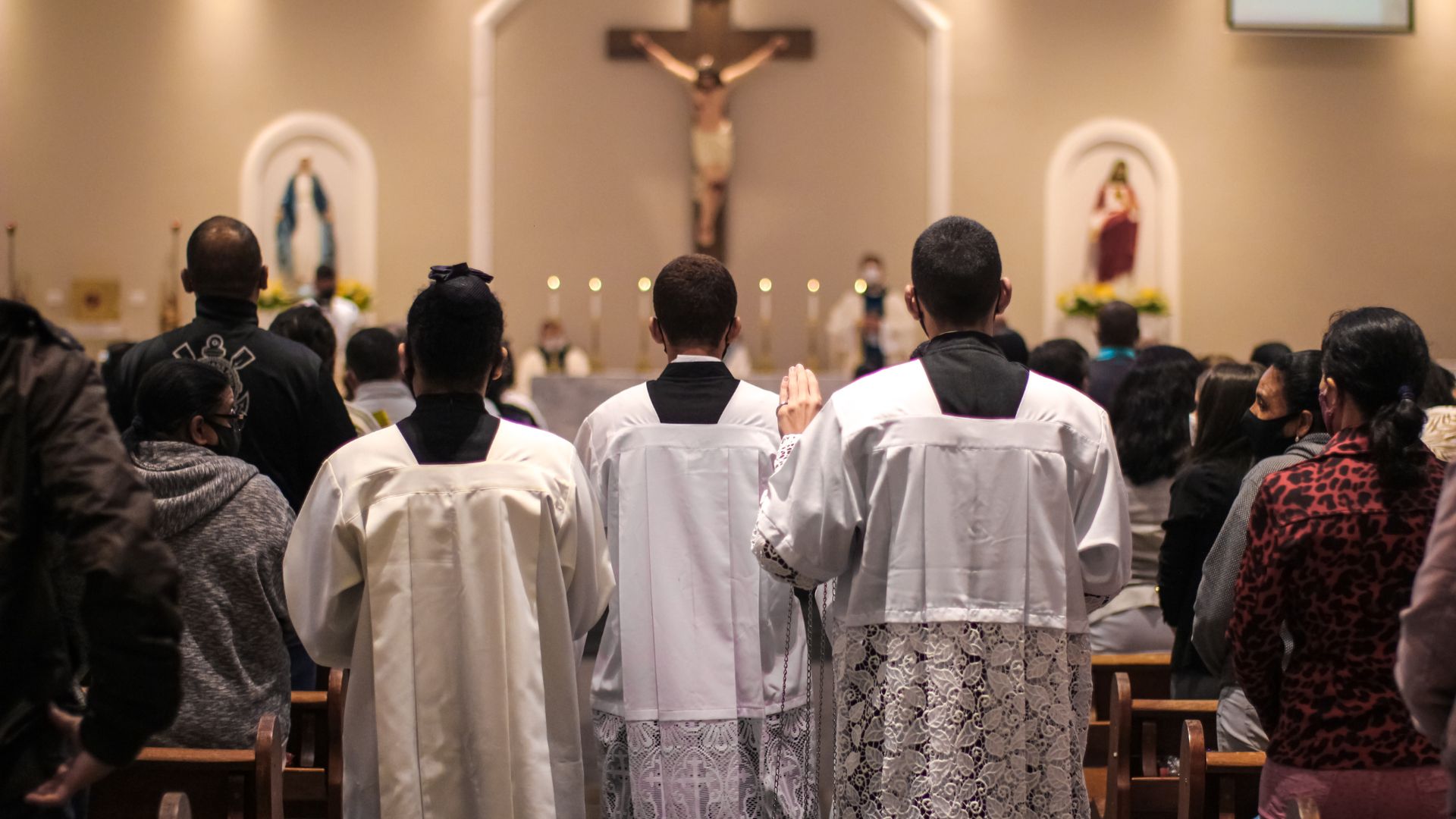The Leviathan, a formidable sea creature mentioned in the Bible, has captured the imagination of scholars, theologians, and readers for centuries.
This biblical behemoth is not merely a creature of the deep, but a symbol rich with metaphorical significance, intertwining threads of mythology, theology, and cosmic battle.
Within the ancient texts, the Leviathan is portrayed with awe-inspiring power and mystery, prompting questions about its nature and the messages it conveys.
From the tumultuous waters of the Old Testament to the scholarly debates of the present, the Leviathan continues to be a potent symbol of chaos, evil, and divine supremacy.
Leviathan in the Bible
Few symbols captivate the imagination as profoundly as Leviathan. This enigmatic creature, mentioned in the pages of the Bible, is shrouded in mystery and significance.
In this in-depth exploration, we embark on a journey to unravel the Leviathan In The Bible: The Biblical Sea Monster And Its Symbolism
Descriptions of Leviathan
The Leviathan is a creature of grandeur and terror, referenced in various books of the Bible, each painting a different aspect of its formidable nature. The most detailed descriptions are found in the book of Job, Psalms, and Isaiah.
Biblical Passages Mentioning Leviathan
Job 41: Here, Leviathan is described as a creature beyond human capacity to tame, clothed in fearsome armor and breathing fire. It’s a passage that highlights the creature’s strength and the futility of trying to combat such a being.
Psalms 74:14: In a more historical and mythic context, this psalm reflects on God’s power, recounting how He crushed the heads of Leviathan, an allusion to divine victory over chaos.
Psalms 104:26: This verse depicts Leviathan as part of God’s creation, playing in the vast sea, indicating a more naturalistic and less ominous presence.
Isaiah 27:1: Leviathan appears as a twisting serpent, a symbol of enmity against God, which will be slain in the days of redemption.
Physical Attributes in the Scriptures
The Leviathan’s attributes, as gleaned from these passages, suggest a creature of both the natural world and mythic dimensions:
Imposing Size and Strength: Described as massive and powerful, the Leviathan is often seen as an untamable force of nature.
Armored Scales: In Job, it’s mentioned that the Leviathan’s scales are its pride, shut up tightly as with a seal.
Fiery Breath: One of the most vivid descriptions in Job is the Leviathan’s breath that kindles coals and a flame that pours from its mouth.
Sea-Dwelling: The Leviathan is associated with the sea, indicative of its dominion over the aquatic realm.
Through these descriptions, the Leviathan emerges not just as a creature of might and dread but also as a metaphor for the overwhelming and the uncontrollable, symbolizing challenges that lie beyond human power to subdue.
Leviathan in Ancient Near Eastern Context
The depiction of Leviathan in the Bible does not exist in a vacuum but is part of a broader tapestry of mythical creatures in the Ancient Near East that represent chaos and the primordial forces of nature.
Similar Sea Monsters in Ancient Cultures
Mesopotamian Mythology: The Babylonian creation myth includes Tiamat, a chaos monster similar to Leviathan, often depicted as a serpentine sea goddess.
Canaanite Mythology: Ancient Ugaritic texts describe Lotan, a twisting, seven-headed sea serpent, which is likely a cognate of the Hebrew ‘Leviathan’.
Hittite Mythology: The Illuyanka myths tell of a serpentine dragon battled by the storm god Tarhunt, a narrative echoing the cosmic combat themes seen with Leviathan.
Influence on Biblical Depiction
The cultural interchanges in the Ancient Near East suggest that these myths and deities could have influenced the Hebrew scribes in several ways:
Shared Symbolism: The common thread of a sea monster representing chaos and disorder suggests a shared symbolic framework that the Hebrew writers were drawing from.
Adoption and Adaptation: Hebrew scribes might have adopted the imagery and tales of neighboring cultures, adapting them within their monotheistic worldview to illustrate theological points.
Counter-Cultural Assertion: By including and yet altering these myths within their texts, the biblical authors were making a statement about the sovereignty of Yahweh over the gods and monsters of pagan cultures.
The Leviathan, therefore, stands as a testament to the cross-cultural exchanges of the time, embodying a motif widespread in the region while being distinctly shaped by the Hebrew monotheistic lens.
The Symbolism of Leviathan
The Leviathan is not merely a creature of the deep but a complex symbol woven into the fabric of biblical literature, embodying multifarious meanings and interpretations.
Leviathan as a Symbol of Chaos and Evil
Primordial Chaos: The sea in ancient Near Eastern culture was often seen as a symbol of chaos, and Leviathan, as a sea creature, naturally inherited this representation. It embodied the untamed and dangerous aspects of the world before God’s creative order.
Moral and Spiritual Chaos: In a more abstract sense, Leviathan has come to represent the forces of moral and spiritual chaos—sin, temptation, and all that stands in opposition to divine order and goodness.
Leviathan as a Metaphor for Nations or Enemies
Political Entities: Throughout the prophetic literature, Leviathan has been interpreted as a metaphor for oppressive and tyrannical kingdoms, such as Babylon or Egypt, which were seen as enemies of Israel.
Societal Threats: Beyond individual nations, Leviathan can symbolize any hostile societal force that threatens the community’s integrity and faithfulness to God.
Leviathan as a Representation of God’s Power
Divine Dominion: The narratives often highlight God’s control over Leviathan, asserting His supreme power over all creation, including the most fearsome creatures imaginable.
Divine Judgment: Leviathan’s ultimate defeat as prophesied in scriptures like Isaiah signifies God’s power to judge and His ultimate victory over evil.
Integrating the Symbolism
Theological Message: The varying symbols associated with Leviathan contribute to a cohesive theological message of God’s uncontested authority over all realms—cosmic, moral, and political.
Literary Device: As a literary device, Leviathan serves to underscore God’s sovereignty, providing a vivid contrast between divine power and human or natural limitations.
The multifaceted symbolism of Leviathan serves to enrich the biblical narrative, providing depth and layers of meaning that have intrigued and educated readers throughout the ages.
Leviathan: The Elusive Beast
Job 41:1 introduces us to the intriguing creature, Leviathan:
“Can you pull in Leviathan with a fishhook or tie down its tongue with a rope?”
Leviathan is described in vivid, almost mythical terms, with scales and breath that spew fire. It is portrayed as a creature of immense power and untamed nature. Its portrayal in the Bible serves as a symbolic representation of chaos, pride, and the forces of evil.
Leviathan as a Symbol of Chaos
Throughout the Bible, Leviathan is often associated with chaos and disorder. In Psalm 74:14, the psalmist reflects on God’s mighty deeds:
“It was you who crushed the heads of Leviathan and gave it as food to the creatures of the desert.”
This imagery conveys the idea that God has dominion over chaos and can subdue even the most tumultuous forces in the world. Leviathan, in this context, stands as a symbol of the chaos and disorder that God can control and defeat.
Leviathan’s Symbolism in Ancient Near Eastern Mythology
Leviathan is not unique to the Bible; it finds its place in ancient Near Eastern mythology as well.
In texts like the Enuma Elish, a Babylonian creation myth, Tiamat, a chaos monster, bears a striking resemblance to Leviathan.
The presence of such mythological elements in the Bible invites a deeper exploration of how these symbols may have influenced biblical narratives.
Leviathan as a Metaphor for Pride
The symbolism of the Leviathan extends beyond the physical and the mythological. In the book of Isaiah 27:1, we encounter Leviathan as a metaphor for human pride:
“In that day, the Lord will punish with his sword, his fierce, great, and powerful sword, Leviathan the gliding serpent, Leviathan the coiling serpent; he will slay the monster of the sea.”
This metaphorical use of Leviathan underscores the danger of human pride and the consequences it may entail. It serves as a warning against arrogance and a call to humility.
Leviathan’s Role in God’s Sovereign Plan
While Leviathan is often associated with chaos and evil, its existence in the divine narrative carries a deeper meaning. In the book of Psalms 104:26, we find a unique perspective:
“There the ships go to and fro, and Leviathan, which you formed to frolic there.”
Here, the Leviathan is depicted as a part of God’s creation, existing as a part of the natural order. This perspective reminds us that even elements that seem chaotic or threatening are ultimately under God’s control and serve a purpose in His divine plan.
Leviathan and the End-Times Prophecy
The symbolism of Leviathan extends into the end-times prophecy. In the book of Isaiah 27:1, the slaying of Leviathan is associated with a future event, symbolizing the ultimate victory of God over evil:
“In that day, the Lord will punish with his sword, his fierce, great, and powerful sword, Leviathan the gliding serpent, Leviathan the coiling serpent; he will slay the monster of the sea.”
This portrayal of Leviathan in an eschatological context underscores the ultimate triumph of God’s kingdom and the restoration of order and peace.
Leviathan and the Call to Faith
The mysterious symbolism of Leviathan beckons us to contemplate the role of faith in our lives. Just as Leviathan symbolizes chaos and pride, it reminds us of the need for faith and trust in God’s sovereignty. In the face of life’s uncertainties and challenges, our faith serves as an anchor, allowing us to navigate the turbulent waters with hope and assurance.
FAQs
1. Is Leviathan a real creature mentioned in the Bible?
Leviathan is not a literal creature; rather, it is a symbolic and metaphorical representation in the Bible. It is used to convey spiritual and moral truths, such as the power of God over chaos and the danger of human pride.
2. What is the significance of Leviathan’s connection to chaos and evil in the Bible?
Leviathan’s association with chaos and evil emphasizes the importance of God’s sovereignty and the consequences of turning away from His divine order. It serves as a reminder of the need for humility and obedience to God’s will.
3. How does Leviathan relate to other ancient mythological creatures?
Leviathan shares similarities with mythological creatures from ancient Near Eastern mythology, such as Tiamat. This suggests that the biblical writers may have drawn on common cultural symbols to convey their theological messages.
4. What is the eschatological significance of Leviathan?
Leviathan’s portrayal in the end-times prophecy symbolizes the ultimate victory of God over evil and the restoration of divine order. It serves as a reminder of the hope and assurance that believers can have in God’s ultimate triumph.
5. How can we apply the symbolism of Leviathan to our faith journey?
The symbolism of Leviathan calls us to reflect on the importance of faith and trust in God’s sovereignty, especially in the face of chaos and challenges. It reminds us that, like Leviathan, even the most turbulent circumstances are under God’s control, and our faith can be our anchor in times of uncertainty.
Conclusion
Leviathan, the mysterious and multifaceted symbol in the Bible, beckons us to explore the depths of biblical imagery and theology.
Its portrayal as a creature of chaos and pride invites us to reflect on the spiritual lessons embedded in its symbolism.
As we journey through the pages of Scripture, we discover that even in the face of chaos and pride, God’s sovereignty prevails, offering hope, guidance, and a deeper understanding of His divine plan.







